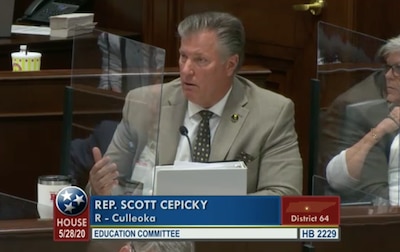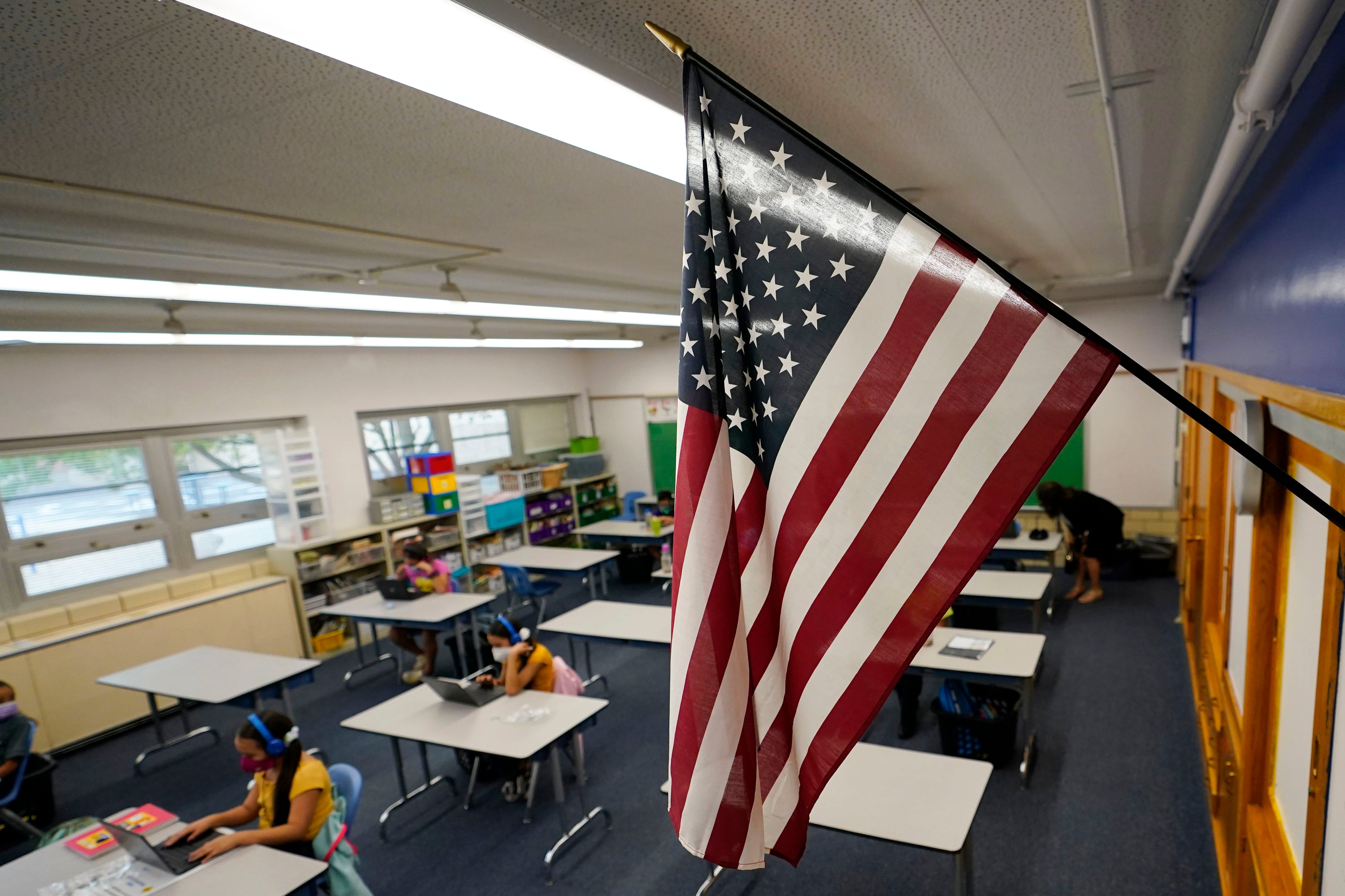With the pandemic putting hundreds of millions of dollars at risk next year for Tennessee public schools, one state lawmaker wants to make sure that education funding remains intact in next year’s budget.
Rep. Scott Cepicky’s bill would stabilize state funding in the 2021-22 school year at this year’s levels, even though a statewide decline in student enrollment this fall would normally decrease the allocation by at least $320 million.
If passed, the measure would enable local officials to begin drafting their next school budgets without fearing cuts.
Enrollment from the current school year sets per-pupil funding levels for the next one. Early data shows about 33,000 fewer students started in Tennessee public schools this fall, with many parents opting to hold back kindergarteners for a year or move older students to home-based or private schools because of disruptions caused by the coronavirus.
Tennessee has avoided budget cuts to K-12 education so far during the pandemic, and Gov. Bill Lee has said he hopes to shield districts from the financial repercussions of the enrollment drop. But with another economic slump possible because of the spreading virus, that’s not guaranteed.
“This is a critical concern,” said Cepicky, a Maury County Republican who filed his bill last week. “If these students come back next year when the virus is more manageable, it’s going to create an undue hardship on local governments to come up with more funding.”
His proposal, called the School Stabilization Act, follows months of conversations with superintendents and school boards.
Statewide organizations representing both of those groups support the legislation. “This is a major concern for districts throughout the state,” said Ben Torres, assistant executive director of the Tennessee School Boards Association.
Cepicky hopes the newly elected legislature will take up his bill soon after convening in January. “Most of our county commissions will be in budget hearings January through May, and it will help them a lot if they know their funding from the state is going to be stable,” he said Tuesday.
The governor also is reportedly considering calling a special session early in 2021 to focus on education issues that likely would include funding, testing, and literacy.

Cepicky believes the pandemic is reshaping funding needs for education. He would like the legislature to authorize a rewrite of the Basic Education Program, or BEP, Tennessee’s formula for funding its schools. Such an endeavor would need to be discussed in education committees, he said.
Created in 1992, the BEP is designed to provide a basic level of education for all Tennessee students, no matter what their school district. The formula uses 45 ratios based on factors such as what a typical class size should be and how much an administrator should be paid to determine a fair and equitable allocation of state funds.
Critics say the BEP lowballs the cost of education and hasn’t kept pace with inflation, government mandates, a growing charter school sector, and expenses driven by changes in technology. The state has tried to update the formula several times, most recently under former Gov. Bill Haslam, who tinkered with the BEP but received pushback about winners and losers under a comprehensive rewrite.
“I think we can do better,” Cepicky said. “If we pass the School Stabilization Act that allows [districts] to remain funding solvent for another year, it would create a window of opportunity and urgency to address the BEP. We’d have about 14 to 15 months to get that done.”
House Speaker Cameron Sexton said this week that the legislature needs to consider tying funding for districts to the instructional model they use, with less money going to those that aren’t teaching students in person. He’s frustrated that Shelby County Schools recently gave its employees a 1% pay raise with money saved by teaching virtually during the pandemic.
BEP equity and adequacy has been the source of several court cases over Tennessee’s system for funding its schools. The biggest one — stemming from a 5-year-old legal challenge from districts in Memphis and Nashville — is scheduled to go to trial next October.





